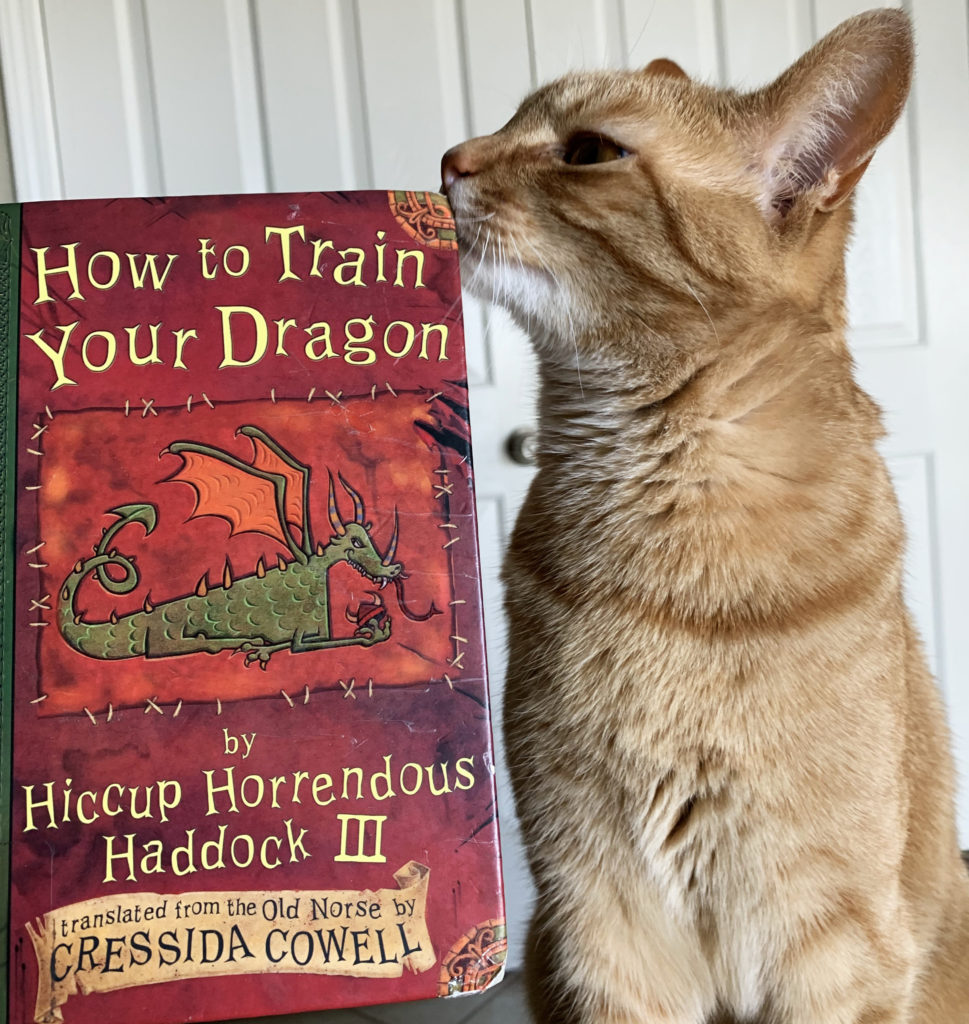As I wrote several weeks ago, Cressida Cowell wrote a fantastic book in How to Train Your Dragon. It was nothing like the movie, yet it held a completely different sort of charm. Last week, I finally completed the entire How to Train Your Dragon series. Admittedly, I cried through not just the last book, but the last three books. Anyone who can make me cry that much certainly has much to teach me. Here are three lessons I learned from the series, starting with things can always get worse.
Lessons from How to Train Your Dragon
1. Things can always get worse.
As Cowell warns at the beginning of book 11, the last two books of the series occur in the span of 48 hours. Additionally, those books are the chonkers of the series. How on earth could so much happen in 48 hours to fill two full volumes? Simply put, things can always get worse.
I mean, Cowell takes hopeless situations and makes them even more hopeless. Our hero faces literally impossible (er, “improbable,”) odds, and yet he overcomes them with his pureness of heart. And, of course, right as things start to look up, the villains swoop back in again to ruin everything. The book twists and turns with shocks that force all the main characters to reevaluate their decisions and presumptions.

I cannot speak of Cowell’s talent at raising the stakes without also referencing a quote from book 10, How to Seize a Dragon’s Jewel. Despite being published in 2012, it struck me as profoundly accurate for our world today.
You see, it was not only Hiccup who was growing up, but the whole world around him – and when whole worlds grow up, that can be painful and difficult.
Was it all worth the Archipelago in flames?
I do not know, you decide.
Cowell, Cressida. How to Seize a Dragon’s Jewel. Hatchette Book Group, 2012, pp. 405.
*Cue the tears. Which leads me to lesson #2…
2. There is a fine line between laughter and tears in catharsis.
One minute, I laugh at the dry humor with which Hiccup views his ridiculous circumstances. The next minute, I cry at the beauty of a story about a loving mother who died before recovering her son. The line between good and evil in the characters is fine, too. One minute the dragon prepares to eat Hiccup. The next minute, the dragon reflects on its unintentional failures to save the humans it loved.
Catharsis is truly a tricky business. How do you make people cry without sounding whiny or forced? Cowell shows us that a writer must rely on the character’s strengths. Only once those strengths run out do we feel the brokenness left behind. Once the strength is gone, we are left with our weakness.
This is, perhaps, the most painful part of the writing and reading process. We taste the merest drop of how God must feel when He knows that things will continue to get worse, yet we must endure it to grow stronger.
But he said to me, “My grace is sufficient for you, for my power is made perfect in weakness.” Therefore I will boast all the more gladly about my weaknesses, so that Christ’s power may rest on me.
2 Corinthians 12:9 NIV
3. Warning the reader of what is to come both accommodates and intrigues readers.
In many of the books, Cowell would reference terrible things to come. The warning would be gentle and vague. She would apologize that the story could not be happier.

I found these warnings to be a fascinating writing technique. One the one hand, the warnings accommodated Cowell’s young readers. They broke up the tension and darkness that would build nearly endlessly in a book for older readers. They gave young minds a break, and ultimately young readers had the explicit choice to keep reading or to stop while things seemed happy. How many books afford readers such respect?
In addition to accommodating her readers, Cowell’s warnings build excitement and intrigue. Readers know that things will get worse, but how? Surely it can’t be that much worse, can it? And so readers plod along through murky waters get thicker and thicker. Yet, the reader, like Hiccup, chose this path. It is up to the reader to see it through.
Conclusion
Cowell packs the How to Train Your Dragon series with so much wisdom, humor, and courage. I have marked this down as a series that my future children must read when they get old enough. (Although, I suppose, they must choose to keep on reading when things get tough, mustn’t they?)
What books have you decided your young friends must read? I’d love to hear in the comments!

Comments are closed.